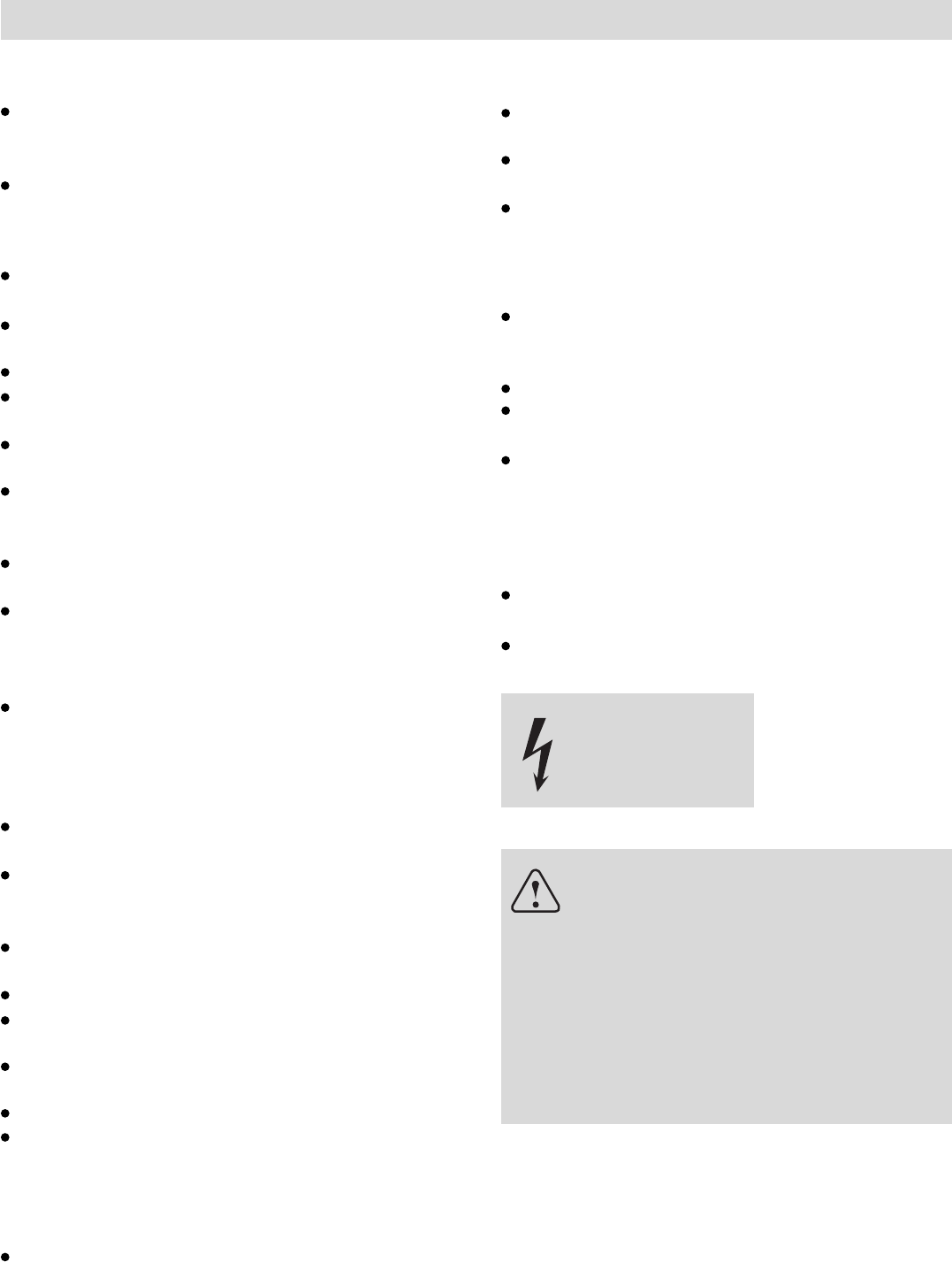
1
If your family includes children
Warning
Safety of Children when disposing of your old
appliance.Some packaging materials can be dan-
gerous for children. There is a risk of suffocation,
keep packaging materials away from Children.
When disposing of old products remember to dis-
able the door locking system by breaking or re-
moving the door catch. and or hinges. This will
stop children from locking themselves inside the
product when playing. (Danger of suffocation).
Dangerous voltage
The appliance is not intended for use by young children or infirm persons
without supervision.
Young children should be supervised to ensure that they do not play with
the appliance.
Keep detergents out of the reach of children, who must also be kept away
from the dishwasher when it is open.
When disposing of old appliances
Appliances which are no longer being used must be made inoperable by
cutting the power supply cord and removing the door lock.
Take the appliance to a designated waste disposal center.
If a fault occurs
If the appliance malfunctions, turn off water supply to the appliance and
disconnect the plug from the wall socket. Then, consult the section entitled,
"Fault finding" .If you cannot solve the problem, contact a service center.
Only specialised personnel are authorised to make repairs.
If the supply cord is damaged, it must be replaced by the manufacture, its
service agent of similarly qualified persons in order to avoid an electrical hazard.
To maintain the EFFICIENCY and SAFETY of this appliance,we recommend:
- call only the Service Centers authorised by the manufacturer.
- always use original Spare Parts.
At time of delivery
Check packaging and dishwasher immediately for signs of transport damage.
If the appliance is damaged, do not put it into use but contact your supplier
or customer service without delay.
Please dispose of packaging materials properly.
Site the dishwasher and connect it up in accordance with the installation
instructions.
The dishwasher must not be connected to the electricity supply while instal-
lation is being carried out.
Ensure that the domestic wiring is properly earthed.
The mains electricity supply must conform to the details shown on the dish-
washer rating plate.
Do not connect the dishwasher to the electricity supply via an extension
cable.
Built-under and built-in appliances should always be installed under a con-
tinuous work surface which is attached to the adjacent cupboards, in order
to ensure that the appliance is entirely stable.
After the appliance has been installed,the mains plug should still be easily
accessible.
Not on all models:
The plastic housing on the water inlet contains an electrically operated valve.
The connecting wires are inside the inlet hose.Do not cut through this hose
and do not immerse the plastic housing in water.
During installation, the power supply cord must not be bent or flattened.
During installation
EN
The dishwasher must only be used by adults for the washing of household
dishes and cooking utensils.
This appliance cannot be installed outdoors, not even if the area in which it
is installed is covered by a roof; it is also very dangerous to leave it exposed
to the elements.
Do not place any heavy objects or swing on the door when it is open. The
appliance could tip forward.
The water inside the dishwasher is not suitable for drinking.
Do not use solvents of any kind inside your dishwasher. They could cause
an explosion.
Open the door very carefully if the dishwasher is operating. There is a risk of
water squirting out.
Do not touch the heating element during or after a wash cycle.
Fundamental rules to follow when using the appliance:
- Never touch the dishwasher when barefoot or with wet hands or feet;
- We discourage the use of extension cords and multiple sockets;
- If the appliance is not operating properly or maintenance must be
performed, disconnect the appliance from the power supply.
The door shall not be left in the open position since this could present a
tripping hazard.
During normal use
Safety information














